|
There are a few things you will need to apply for a real ID Proof of Identity: Original or Certified US Birth Certificate, unexpired US Passport, employment authorization document, permanent resident card or foreign passport with a valid US visa and approved I-94 form Proof of Social Security Number(SSN Card, W-2 or pay-stub with full SSN) Proof of California Residency (printed copy of home utility bill, vehicle registration card, mortgage or lease agreement, bank account or property tax bill) Read ID requires proof of 2 residency documents A name change document such as a certified marriage certificate or divorce decree, is required if the name on your identity document is different than the name on your application . Multiple name change documents are needed if your name has changed multiple times www.dmv.ca.gov or call 800-777-0133 Vital Records If you cannot find your Birth Certificate you can apply for one form the Vital Records of the county in which you were born. Download the application fill it out , the form titled "Sworn Statement" needs to be signed in front of a #notary. Application For Certified Copy Of Marriage Record and Application For Certified Copy Of A Birth Record are the names of the Applications that are required to be signed in front of a #notary. County Registrars and Recordershttps://www.cdph.ca.gov/Programs/CHSI/Pages/County-Registrars-and-Recorders.aspx Social Security Card If you lost your Social Security Card you can apply for a new one The first step is to learn what documents you need. You’ll need to show us a U.S. driver’s license, a state issued non-driver identification card, or a U.S. passport to prove your identity. Sometimes you may also need to prove your current U.S. citizenship or lawful non citizen status with a birth certificate or passport. Keep in mind that all documents must be either originals or copies certified by the issuing agency. Photocopies are not acceptable, nor #notarized copies of documents. Once you’re clear on what documents you’ll need, the second step is to print the Application for a Social Security Card, so you can fill it out. Finally, the third step is to mail your application and original documents to the your local Social Security Office or go to the Social Security Website and it will take you to a screen where you can find the address of your local office https://www.ssa.gov/
1 Comment
 Hey! I just found $30 of unclaimed money from Kaiser Foundation Health Plan!! sitting on the Unclaimed Property Website of the California State Controller’s office YAY♥ One of the best feelings is finding money you didn’t know you had whether it's on the street or in the pocket of an old pair of jeans, in the washing machine or dryer, finding money feels like you have won the lottery. So, what is Unclaimed Property? Unclaimed Property is generally defined as any financial asset that has been left inactive by the owner for a period of time specified in the law, generally three (3) years. The California Unclaimed Property Law does NOT include real estate. Unused gift certificates are also generally excluded from unclaimed property and are not sent to the State as unclaimed property. The most common types of Unclaimed Property are:
While finding money might seem like a fluke there is actually billions of dollars sitting with state governments right now. The cash comes from uncashed paychecks, forgotten bank accounts, unclaimed refunds, and insurance payments that were never collected. After a company or financial institution loses touch, that cash is considered abandoned and is handed over to the state government until it's claimed. How Do I Find Out If You Have Unclaimed Property? Search here, to find out. https://www.sco.ca.gov/upd_msg.html Follow the prompts, if you do have unclaimed property or funds, there will be options on claiming your funds electronically or paper. Each state has its own rules about filing a claim online or by mail. If the money is over a certain amount, the state may require the claim form be notarized. Check your unclaimed money status today If you decide to print the paper claim form there will be an area you need to sign In front of a #Notary (that’s where I come in) print it and bring it to me to have it notarized , mail it off. That’s IT!!! Simple Good Luck! and hope you find some unclaimed money 😊 Why have a document Notarized? is the question I get time and time again, today being one of those days. A woman called my office asking me why does a document need to be notarized, my reply? for the purpose of "Self-Authenticating."
What is self-authenticating? According to the law of evidence (Rule Number 902) in the United States, self-authenticating documents are that which can be admitted into evidence at a trial without proof being submitted to support the claim that the document is what it appears to be. In short, these are documents those which do not require outside evidence of authenticity in order to be admitted in evidence. Several categories of documents are deemed to be self-authenticating. Under Rule Number 902 of the Federal Rule of Evidence there are 14 Items of evidence which are self-authenticating; they require no extrinsic evidence of authenticity in order to be admitted: Item 8 Pertains to the #Notary Acknowledged Documents. A document accompanied by a certificate of acknowledgment that is lawfully executed by a notary public or another officer who is authorized to take acknowledgments. What is a Notary Public?
Support Small Businesses. When you consider how many small businesses surround you in your everyday lives, it is impressive to think about the amount of time, commitment and labor these hard working individuals contribute to make their businesses both come to life and stay alive. Yet, many Americans frequent chain stores without considering their local merchant or other small business options. Whether it's filling a prescription at a local pharmacy vs. Walgreens or picking up eggs and milk at a local corner store vs. your nearest Walmart, small businesses are too often overlooked for all the wrong reasons. Customers assume that pricing will automatically be higher at a small business vs. a corporate owned store, as well as they dismiss the perks that many small businesses offer such as customer care, inventory assortment and community support. However, did you know that many of these misconceptions about small businesses are just that... misconceptions https://www.forbes.com/sites/nicoleleinbachreyhle/2014/09/02/why-you-need-to-support-small-businesses/#4d12f0ea7b0d
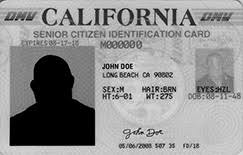 You must have an ID for everything now specially to have something notarized One of my pet peeves as a #notary is Identifying Senior’s who no longer drive and do not have a valid form of Identification. Recently I have had scenarios in which an important document needs to be notarized, & the form of Identification Presented is an expired Driver License, usually the rationale is ‘I stopped driving a year ago, so I didn’t renew it” or from the caregiver “my mother/father does not drive anymore so we let the DL expire”. Some seniors choose not to drive, which means the driver’s license – one of the most common forms of identification people carry – is expired. Lack of proper ID can become an issue if you need to get important documents notarized, like those dealing with real estate or estate planning. When it comes to signing off on important documents, a notary public will be required to validate the signature – which means a proper ID, no matter what age. The notary process will move quickly and easily if you have valid identification, and it’s even more convenient if you use a mobile notary. The purpose of notarization is to reduce the potential for fraud when parties are executing important documents. Therefore, the notary professional must have some way to verify identity to ensure that the signers are who they claim to be. Most of the time, the signatories will not be known to the notary professional, so proper ID is the best way to confirm identity. As more seniors are turning to mobile notary services who arrive onsite for document execution, it’s likely that you won’t know the notary public and must have ID on hand. The rules of different states vary on the types of identification that are acceptable for notary professionals. Some jurisdictions specify the documents a signer can use to prove their identity; others simply state that ID should have certain criteria, such as that it must be issued by state or federal government, must have a color photo of the individual presenting it, or must be signed by the person. If a state doesn’t designate a specific ID type, the notary public will typically require presentation of some form that allows them to compare physical appearance and signature to the document to be signed. IDs that are acceptable in every state.
Forms of identification that don’t feature both a photo and signature aren’t likely to qualify for purposes of notarization. They include, but aren’t limited to: Credit & Debit Cards Social Security Cards Birth Certificates These types of documents may contain your signature, but a notary public can’t confirm that the holder of the card is you without a picture. Senior ID Card—To qualify for a no fee senior citizen ID card, you must be 62 years old, or older ID card has a banner with the words “Senior Identification Card” on the front. Seniors who are no longer mobile, can apply for a California Identification Card Renewal by Mail Fill out form DL 410 and mail it to DMV Renewal by Mail Unit: PO Box 942890 Sacramento California 94290-0001 https://www.dmv.ca.gov/portal/wcm/connect/ecb08237-a493-479b-9141-4c9ae448e898/dl410id.PDF?MOD=AJPERES Tips on Signing a Document
Whether you're buying a home or settling a lawsuit, it's essential that you know how to sign a document. Signing your name to a binding document unknowingly or without an understanding of the document's contents and intent can be a costly mistake. If you are inexperienced at signing legal documents, enlist the help of a knowledgeable family member, close friend or legal counsel to assist you in making well-informed choices about the types of legal documents you sign.
Notary Disclaimers: A notary public or other officer completing the notary certificate verifies only the identity of the individual who signed the document to which this certificate is attached, and not the truthfulness, accuracy, or validity of that document. according to a survey by the National Notary Association in 2015 there are many notaries threatened but few call the police. Overall, 26 percent of notary survey participants said they’d been in a hostile or dangerous situation during a notarization.
This happened to me this morning: A customer called me this morning for a GNW needing a paper notarized by her husband at 1st she was going to come with her husband to my office, then she changed here mind and asked for a mobile notary service agreed. I take the address down and drive to her house. I show up and her husband is obviously ill because he can barely move and didn't say much, she shows me the papers and tells me he wants one document notarized even though it doesn't show any notarial working, like an acknowledgment or Jurat. I explained to the wife (who was doing all the talking) that the notary certificate needed to be stapled on to the document. We agreed. He (the man/husband) is getting ready to sign, while I complete the journal and she asks me where should he sign, I reviewed the document with her (reading it out loud) & we get to the part of the signature which showed 2 options, Patient or Representative, she says she needs to sign it because she is the "representative" I asked her if she had a POA (Power of Attorney) or Healthcare Directive ( she had neither) then suddenly she gets heated like upset, because she says that during the conversation she "clearly" told me that she was signing a POA (Power of Attorney) which is what I agreed to #notarize (which is untrue) I told her that the document we were notarizing wasn't a POA but a Physician Orders for Life-Sustaining Treatment (POLST) She said "Never mind I aint paying you" & you need to get out of here! I said "well you still need to pay-me for my trip" She said Naw" I ain't paying you because you didn't do anything" The husband looked upset and told her to pay me but she kept running her mouth (which I couldn't understand) she was so angry . I explained to her that next time she calls a notary to her home to be very clear about what service she needs. I couldn't wait to get out & so I left getting paid gas money 🙁. I was so nervous I almost walked into the closet 😁🤣she slammed it and said "wrong door" She practically threw me out of her house. all she needed to do was kick me in the butt like in the cartoons (😆) . "My stomach was in knots I was so scared" But I was glad nothing serious happened & made it safe back to my office. As notaries we are unaware of the environment or situation we are about to face when it comes to Mobile Notary assignments, specifically when entering a person's home. The basis of the notarial request is unknown until the meeting . As Notaries we take great risk every time while performing a mobile notary assignment and the outcome is unpredictable. https://www.nationalnotary.org/…/survey-notaries-threatened… 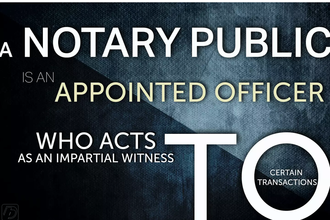 Notaries authenticate the identity of document signers. Notaries are appointed public officials who help ensure the integrity of signatures on important documents. A notary public verifies the identity of somebody who signs a document, witnesses the signature, affixes the notary seal to the document and then records the signing in her notary journal. The scope of practice of a notary public, as well as the amount of money he can charge for services, varies according to state. The types of documents that need notarized signatures include, legal documents divorce agreements, letters, consent to travel forms, deeds and trust documents as well as some contracts. Why have a document Notarized? For "Self-Authenticating." What is self-authenticating? A self-authenticating document, under the law of evidence (Rule Number 902) in the United States, is any document that can be admitted into evidence at a trial without proof being submitted to support the claim that the document is what it appears to be. Several categories of documents are deemed to be self-authenticating: Certified copy of public or business records; Official publications of government agencies; Newspaper articles; Trade inscriptions, such as labels on products; Acknowledged documents (wherein the signer also gets a paper notarized); In short, these are documents those which do not require outside evidence of authenticity in order to be admitted in evidence. § 1451. Acknowledged writings California Evidence code section 1451. A certificate of the acknowledgment of a writing other than a will, or a certificate of the proof of such a writing, is prima facie evidence of the facts recited in the certificate and the genuineness of the signature of each person by whom the 'writing purports to have been signed. Administrative and Professional Positions In many instances, a notary public may work in an administrative or professional position for either a private company or a public agency. These notaries provide their services, as needed, to their colleagues and managers. The rest of the time, these notaries have other job duties that occupy most of their time. For example, a company's office manager may be a notary public, notarizing documents, as needed, while also performing tasks such as scheduling meeting rooms, ordering office supplies, and helping onboard any new hires in the company. Similarly, a paralegal may conduct legal research, prepare documents, and assist lawyers at trial, while also providing notary services to partners and staff. Mobile Notary Notaries in some states can work independently and may provide on-demand services to private clients. These mobile notaries will travel to meet with clients and to witness their signatures. Mobile notaries are often called upon to witness signatures in real estate transactions. They can also provide services to businesses that do not have a notary on staff and may also work with individuals who need to sign a legal document, such as divorce papers or an authorization to make changes to an investment account.
What Kind of Work Can a Notary Public Do? Range of Duties Depending on the state, a notary public can do more than witness signatures. A notary public in New York, for example, can take affidavits and depositions and administer oaths and affirmations. In Washington, a notary public can certify that an event or an act occurred and can take acknowledgements. While notaries public in Florida can perform a civil wedding ceremony, not all states confer this power to notaries. Loan-Signing Agents Many notaries are also loan-signing agents. Loan-signing agents are trained in to properly execute loan documents and often provide notary services to mortgage, escrow, and title companies. A loan-signing agent explains the documents to the signers and witnesses the signatures. Some states have restrictions limiting what a loan-signing agent can do. For example, Nevada, Nebraska, and North Carolina limit how much a notary public can charge for providing these services, and other states, including West Virginia and Massachusetts, require a notary public work to work in concert with an attorney admitted to the bar in the specific state. Oaths Affirmations and Acknowledgements Notary Publics in all states can administer and sign oaths, affirmations, and acknowledgments, according to the American Society of Notaries. Some documents, including applications and affidavits, require the signer to swear an oath, affirm or acknowledge under penalty of perjury that the contents of the document she is about to sign are true. The signer must sign the document in the Notary Public's presence, and the Notary Public must verbally ask the signer to acknowledge the oath or affirmation. Upon receiving an affirmative answer, the Notary Public can notarize the document. Contracts Some states allow Notary Publics to sign contracts. Contracts are agreements that can be enforced by law, with specific remedies if the agreements are not adhered to. Contracts must include a promise made in exchange for fair consideration, according to the Cornell University Law School. Contracts may be signed prior to being notarized, but the signer must appear in person before the Notary Public and affirm that the signature is genuine. Power of Attorney Notary Publics in some states can sign powers of attorney. A power of attorney grants authority to one individual to handle the affairs of another individual, and to enter into legal and financial agreements on that person's behalf. Powers of attorney may be unlimited or limited in scope. The Notary Public must ensure that all required elements are present before signing a Power of Attorney. Deeds A deed is the legal document used to transfer real estate ownership. A deed typically includes a description of the property, along with the names of the new owner and old owner. The individual who is transferring the property must sign the deed, according to Nolo.com. Some states allow Notary Publics to witness and sign deed transfers. Copy Certification by Document Custodian States that do not permit copy certification may allow what is known as "copy certification by document custodian." Copy certification by document custodian is the process where the holder of the original document signs a notarized document stating that the copy is identical to the original. In the cases of copy certification by document custodian, the custodian of the original document, rather than the notary public, vouches for the legitimacy of the copy. A notary public notarizes the document stating that the copy is an original rather than notarizing the actually certified copy. Exceptions Some states do not accept copy certification for documents of any kind, while others only accept it for certain documents. For example, New York does not accept any copy certifications, and in California, the only copy certifications allowed include powers of attorney and some notarial journals. Additionally, some documents may never use copy certifications, including U.S. naturalization certificates, vital records such as birth or death certificates, or recordable documents such as deeds. Clients wanting a certified copy of these types of records must request it from the custodian of that record, such as the state government or federal government. Notary Pay Scale Charging for Notarial Acts Each state establishes a maximum fee a notary can charge for each notarial act, which consists of a signature on a single document. For example, the maximum per notarized signature, fee in California is $15.00 if a notary signs five documents, she can charge a total of $75 for the notarizations. Charging for Services In addition to notarial acts, notaries can charge for related services. A notary signing agent, also called a witness-only loan closer, may charge a fixed fee for a loan closing, such as $150. For Example, If the closing takes place in New York and there are 10 notarial acts in the closing, the notarial fees are $100, with a loan closing fee of $50. Notaries must pay self-employment tax on income that is not from a notarial act, such as the closing fee. Notaries are well-qualified to serve as proctors. A background check is the key qualification for a proctor Many educational institutions are expanding their curriculum to allow students to take classes and study online. But when it comes to taking tests, it’s still essential to have a physical proctor present to ensure students don’t cheat. When a student takes tests for an online course, typically the student is required to take the test outside the home — a business or anywhere outside the residence with an Internet connection. To ensure academic integrity, an Independent Test Proctor is typically assigned to meet the student at the testing location. Notaries are well-qualified to serve as proctors. Though proctoring does not require a Notary commission, many Notaries are background checked, whether through the commissioning process as in California or individually as part of working as a signing agent A background check lets the school know the Notary is a model citizen. The student knows the Notary is trustworthy and can be comfortable. Notary Services etc., offers a Proctored Exam Testing Site. How it works: 1. The Examinee arranges to have testing instructions, a copy of the exam and an acknowledgement sent to Notary Services etc. office via mail, fax, email or courier, app or online portal. 2. When the Examinee arrives for his appointment, (s)he is verified and logged in by furnishing a valid form of identification; then administered the exam at one of our internet accessible workstations. Exams can be taken on paper or online. 3. Upon completion of your examination, Notary Services etc., will certify your exam for forwarding to the receiving agency. Students Students taking exam. Some of your distance courses require you to take proctored exams. Your instructor will indicate this requirement via the course catalog, course syllabus, a Canvas announcement, or an email. Not all your courses may require proctored exams. ⦁ Schedule 1-2 weeks prior to your exam. ⦁ Every educational institution has a process in place on how to schedule your exam through a proctor. ⦁ Your exam information will be emailed to your proctor within 3 weeks of your exam. You will receive a confirmation email to your email letting you know that is has been sent. ⦁ You should contact your proctor before your appointment to ensure that they have your exam information. If they do not have your exam information, please contact Campus Testing and it can be resent. ⦁ Then your exam information will be emailed to your proctor within 3 weeks of your exam. You will receive another confirmation email letting you know the exam information has been sent. . Bring a form of photo identification. Bring any items allowed by your instructor for the exam (e.g. calculator, book, notes, etc.). Reminder: Cell phones, laptops, tablets and/or PDAs are not allowed during your exam. It’s that simple call 661-864-7647 if you need the service of a test proctor!  I receive several request for my services regarding inmate #notary visits & or jail related #notarizations not necessarily to enter the prison to #notarize the signature of the inmate but to guide the inmate's families on how to handle certain #notary requests from the detainee. I received a call from a woman who's brother is detained, through California Department of Corrections & Rehabilitation system, she said her brother asked her to "go to a #notary so that his kids can go see him". Her request was a bit unclear so I needed some information in order to assist her. Asking a few questions regarding the inmate such as: √Inmate Name DOB √Booking / Register number √Facility name and location , helps to determine, what the visiting rules of the specific detention facility are & necessary documents required for visitation. In this particular case this is what she was referring to:
With this information I was able to download the form titled "Written Consent for Minor Visitation", which needed to be signed and authorized by the legal parent (in this case the minor's mother) . The detainee did not provide this document & she had no idea where to look to find this document causing my customer a bit of confusion on how to proceed and because this document needs to be signed and notarized the detainee requested she "go to a notary" As a Full Time Independent Notary Public, customers have the expectation that I should and must know what needs to be done when the word "notary" comes up. I inform my customers that I am not an attorney and cannot give legal advice or accept fees for legal services. However, I do explain while I am downloading documents for them, I am simply providing a secretarial service and not acting as a Notary but as an Independent contractor. That way there will be no miscommunication regarding my role as a Notary Public & the Ancillary Services provided. I do feel it is my responsibility & top priority to go over & above the call of duty to assist my customers in meeting their needs, without the Unauthorized Practice of Law particularly drafting of documents and giving advice. Information regarding detainee's in the California Department of Corrections is available to the public at their website: https://www.cdcr.ca.gov/Visitors/index.html- |
Archives
May 2024
Categories |
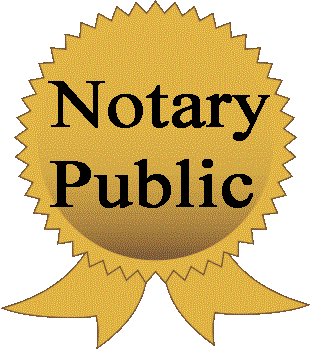
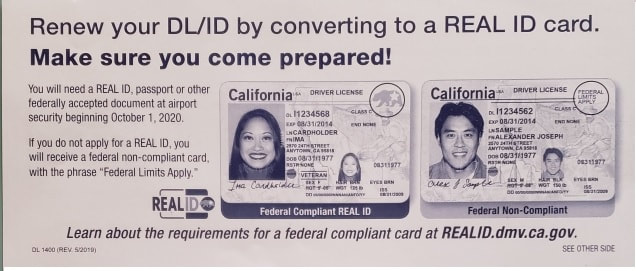
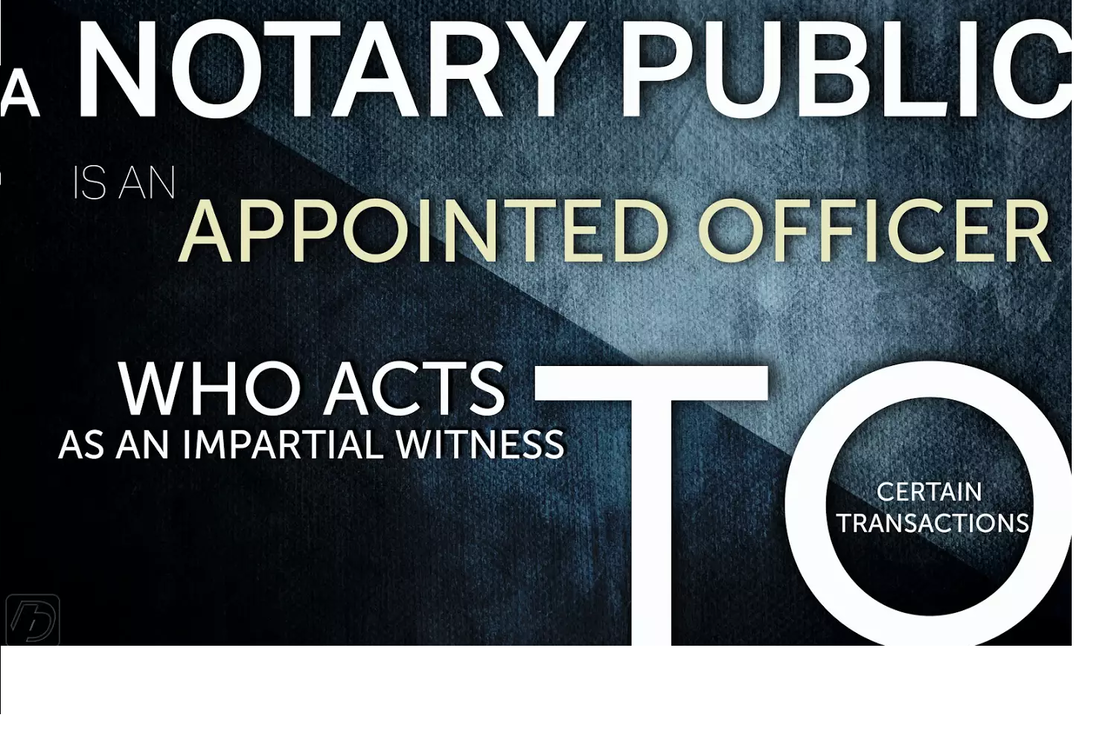
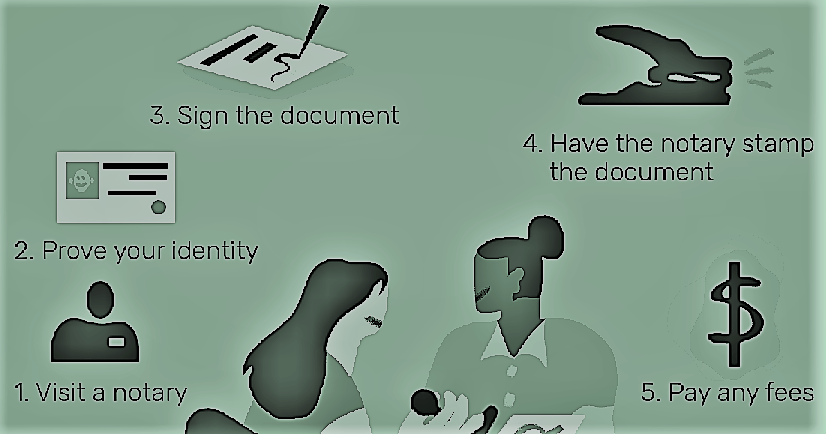

 RSS Feed
RSS Feed